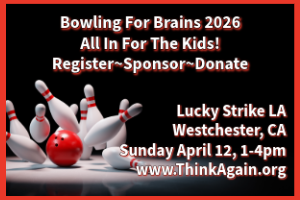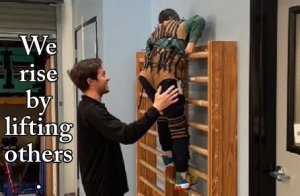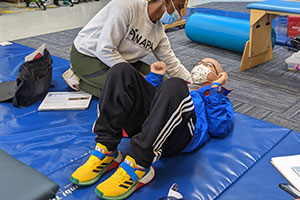ThinkAgain! was established in 2008 as a non-profit organization that provides rehabilitation therapies for children severely affected by cancer and brain tumors. Funding for these costly, yet needed therapies, are either not covered, have been denied, or are insufficiently covered by medical insurance, making it unaffordable for these families.. These children are not only fighting to survive, they are fighting to thrive and succeed in their lives after cancer. We'd love your support.
Because of significant advances in therapy, about 80% of children diagnosed with cancer under the age of 15 will survive their disease. This success rate however, comes with a substantial cost to the cognitive, sensory, motor and academic functioning of many survivors. Central nervous system chemotherapies, radiation to a developing brain, surgical navigation through sensitive brain areas to remove tumors, dangerous complications of bone marrow transplants are just some of the invasive, but necessary treatments used to achieve a cure.
These late effects, or injuries to the brain, especially a brain in early development, may result in disorders of memory, visual and perceptual motor skills, processing speed, receptive and expressive language, fine and gross motor ability, tracking, attention, speech, organization and planning, to name just a few. Funding for these costly, yet needed clinic-based therapies, are often denied by the child's medical insurance company, or insufficiently covered. These children are not only fighting to survive, they are fighting to thrive and succeed in their lives after cancer. The doctors saved their lives. ThinkAgain!, along with your help, is saving their future.
- National Cancer Institute Report: Late Effects of Treatment for Childhood Cancer
- Long-Term Follow-Up Guidelines for Survivors of Childhood, Adolescent and Young Adult Cancer - COG 2025
- School After Cancer Treatment - Children's Oncology Group
- Neurocognitive Status in Long-Term Survivors of Childhood CNS Malignancies: A Report from the Childhood Cancer Survivor Study - 2009
- Neurocognitive Functioning in Adult Survivors of Childhood Non-Central Nervous System Cancers - 2010
- Neurocognitive Interventions for Children and Adolescents Surviving Cancer, 2004






